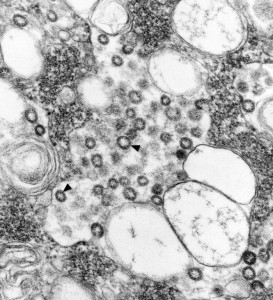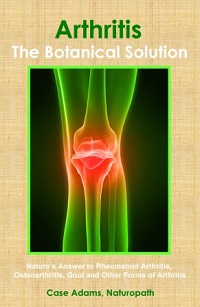The Mystery of H. Pylori, Ulcers and Stomach Cancer
Helicobacter pylori bacteria have been linked to gastric cancer and ulcers. But for much of the world’s population, H. pylori is a natural part of the digestive tract and isn’t linked to any disease. In many populations, H. pylori are perfectly healthy. What is going on here?
In this article
The big mystery of H. pylori
The mystery is that Helicobacter pylori, a gram-negative bacterium species typically found in the stomach, has been linked to ulcers, gastritis and gastric cancer – specifically stomach cancer. Yet most of the population of third world countries host H. pylori, with extremely low gastric cancer rates.
Some studies have shown that nearly all healthy children host the bacterium throughout the third world, and those countries with the highest H. pylori communities have the lowest rates of gastric cancers.
Furthermore, the host rate of H. pylori infection among Americans has been going down dramatically over the past 50 years, and U.S. H. pylori rates are now extremely low.
However, those who do harbor the bacteria in America and other western countries have an extremely high risk of contracting stomach cancer. Over 800,000 stomach cancer cases occur each year worldwide.
Aside from these mysteries, the central mystery is why H. pylori does not have ill effects – including stomach and duodenal cancers – in over 80% of those populations infected by the bacterium.
It all comes down to a gene
A 2017 study from Columbia’s University del Valle tested 176 patients who were infected with H. pylori. The researchers used a triple antibiotic strategy. The effective treatment rate was close to 75 percent.
However, there was a huge post-treatment infection rate of 64 percent. This means they were growing back fast. But even more important, some strains were growing faster than others.
The strains that were growing back fast had genes recognized as CagA-positive. CagA is a part of the DNA – an oncoprotein secreted by certain species of H. pylori.
As it turns out, the CagA-negative strains of H. pylori were much easier to kill. But these are also the healthy strains of H. pylori. CagA-positive strains of H. pylori tend to carry a genotype called vacA s1. This s1m1 genotype is linked to gastritis and cancer.
Salt diets and CagA-positive H. pylori
Research from the Vanderbilt University School of Medicine put together a big element of the puzzle of H. pylori and stomach/gastric cancer in 2013.
The researchers found that gerbils that hosted H. pylori on a high-salt diet had nearly double the rate of stomach cancer than those infected with the same species of H. pylori who ate a normal diet.
Of those with CagA-positive H. pylori, every gerbil on the high-salt diet contracted stomach cancer – yes, 100% – while only 58% of the normal-diet gerbils contracted the cancer.
This led the researchers to conclude that salt somehow exacerbates stomach cancer in CagA-positive H. pylori infections.
The puzzle came together when the researchers found that those on the high salt diet who did not contract stomach cancer were actually infected with another species of H. pylori. This was the species that does not produce CagA.
None of the gerbils on the high-salt diet with CagA-positive H. pylori contracted stomach cancer.
This meant that not only does CagA-negative H. pylori not cause gastritis and cancer. But a high-salt diet in the presence of a CagA-positive infection of H. pylori does produce stomach cancer – at an extremely high rate.
CagA-positive H. pylori linked to countries with Western diet
About 60% of isolated H. pylori species have been found to be CagA-positive among Western countries. But most of the third-world infections are of what is considered the Eastern strain of CagA-negative H. pylori.
This means that the Eastern species of CagA-negative H. pylori is actually not a pathogenic bacteria at all, but rather, a eugenic bacteria – not necessarily harmful or helpful to the host.
And it also means that the widespread infection of these hardy strains of CagA-positive H. pylori together with the highly processed and salty Western diet lies at the root of our high stomach cancer rates among Western countries.
A recent study from China’s Jinling Hospital found that CagA-positive H. pylori infections are growing among children in China – especially in Eastern China where much of the urban areas are, and where Western diets (rich in animal protein) are growing.
So it appears that the infection rates of CagA-positive H. pylori are higher among those countries that eat predominantly a western diet, and infections rates are growing among countries who are increasingly eating a western diet.
Gastritis and ulcers are also associated with CagA-positive H. pylori infections.
Probiotics help deter CagA-positive H. pylori
A 2016 study from Seoul National University investigated H. pylori eradication with probiotics. They tested patients with ulcers and gastritis with H. pylori infections.
They compared antibiotic therapy with probiotic therapy. They found that while the antibiotics produced antibiotic-resistant H. pylori, the probiotics produced a new balance of microbes in the gut that reduced the antibiotic-resistance of the H. pylori. The researchers concluded:
“Probiotic supplementation can reduce the antibiotic-induced alteration and imbalance of the gut microbiota composition. This effect may restrict the growth of antibiotic-resistant bacteria in the gut and improve the H. pylori eradication success rate.”
Berberine inhibits H. pylori
Researchers from a Chinese medical university tested 612 people with H. pylori infections. They treated them with quadruple antibiotic therapy, but they treated half with berberine as well. The other half had bismuth treatment.
The researchers found the berberine treatment was effective in reducing H. pylori CagA-positve by 86 percent.
Berberine is a component of Goldenseal and Oregon Grape herbs.
Yes, nature is smart. Smarter than you think.
REFERENCES:
Bustamante-Rengifo JA, Matta AJ, Pazos AJ, Bravo LE. CagA EPIYA motif in Helicobacter pylori strains. World J Gastroenterol. 2017 Mar 21;23(11):1980-1989. doi: 10.3748/wjg.v23.i11.1980.
Zhang D, Ke L, Ni Z, Chen Y, Zhang LH, Zhu SH, Li CJ, Shang L, Liang J, Shi YQ. Berberine… Helicobacter pylori eradication… trial. Medicine (Baltimore). 2017 Aug;96(32):e7697. doi: 10.1097/MD.0000000000007697.
Oh B, Kim BS, Kim JW, Kim JS, Koh SJ, Kim BG, Lee KL, Chun J. Probiotics on Gut Microbiota… Helicobacter pylori Eradication Helicobacter. 2016 Jun;21(3):165-74. doi: 10.1111/hel.12270.
Gaddy JA, Radin JN, Loh JT, Zhang F, Washington MK, Peek RM Jr, Algood HM, Cover TL. High dietary salt intake exacerbates Helicobacter pylori-induced gastric carcinogenesis. Infect Immun. 2013 Apr 8.
Chiurillo MA, Moran Y, Cañas M, Valderrama E, Granda N, Sayegh M, Ramírez JL. Genotyping of Helicobacter pylori virulence-associated genes shows high diversity of strains infecting patients in western Venezuela. Int J Infect Dis. 2013 Apr 20.
Lu J, Wang CM, Xu ST, Song LL, Zhao XM, Wang QY, Sheng GY. Role of helicobacter pylori infection in the pathogenesis and clinical outcome of childhood acute idiopathic thrombocytopenic purpura. Zhonghua Xue Ye Xue Za Zhi. 2013 Jan;34(1):41-4.
Vaziri F, Najarpeerayeh S, Alebouyeh M, Molaei M, Maghsudi N, Zali MR. Determination of Helicobacter pylori CagA EPIYA types in Iranian isolates with different gastroduodenal disorders. Infect Genet Evol. 2013 Apr 6.
Krzysiek-Maczka G, Targosz A, Ptak-Belowska A, Korbut E, Szczyrk U, Strzalka M, Brzozowski T. Molecular alterations in fibroblasts exposed to Helicobacter pylori: a missing link in bacterial inflammation progressing into gastric carcinogenesis? J Physiol Pharmacol. 2013 Feb;64(1):77-87.
Jiménez F, Barbaglia Y, Bucci P, Tedeschi FA, Zalazar FE. Molecular detection and genotypification of Helicobacter pylori in gastric biopsies from symptomatic adult patients in Santa Fe, Argentina. Rev Argent Microbiol. 2013 Jan-Mar;45(1):39-43.
Chen CY, Wang FY, Wan HJ, Jin XX, Wei J, Wang ZK, Liu C, Lu H, Shi H, Li DH, Liu J. Amino acid polymorphisms flanking the EPIYA-A motif of Helicobacter pylori CagA C-terminal region is associated with gastric cancer in East China. J Dig Dis. 2013 Mar 21.



















